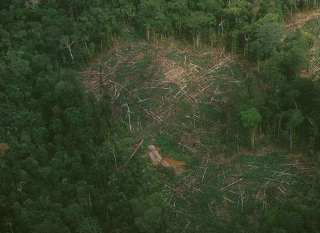|
THE
UNCONTACTED
|
From traces in the forest and witness accounts at least six groups of uncontacted Indians were until year 2000 known to live in the Javari area.
An aircraft donated in 1998 by the Spanish Development Cooperation to the ethno-environmental operation in Javari was finally operational in 2000, enabling the first systematic mapping of uncontacted Indian communities by air.
By June 2001, at least 19 such communities had beeen detected in the Javari Indfian lands.

PHOTO::Erling Söderström © 2000
The uncontacted tribes are fragments of former Indian nations who have fled the violent incursions of the external world. They all have tragic memories of decimation dy diseases and bullets and when contacted often give testimony of organized massacres perpetrated against their people to expel them and open their lands and natural resources to predatory exploitation.
Such groups can be composed of only a few surviving individuals or at most isolated communities of a few hundred people. They live on a subsistence level, and plant small fields where they grow manioc and maize. The fields are often several fields separated by thick forest, enabling them to hide their food supply if one field is discovered and destroyed. Divided into small groups and moving over an extensive forest area they can take cover in small "tapiris" temporary quickly erected shelters undetectable by air
. The social and cultural losses for these communities are immense. Living in a permanent state of flight, decimated by diseases, left without their "pajes", shamans charged with transmitting the knowledge of medicinal plants to the younger generation., they risk losing for humanity precious knowledge of the forest and many traditional rituals and ceremonies.
Only a safe and protected living environment free from the disrupting incursions of the external world can ensure their chance of reproducing and rebuilding their communities, traditions and rituals and transmit their knowledge to future generations.
It is our responsibility to protect their forest. Our predatory quest for resources has already destroyed too much on this planet
ERLING SÔDERSTRÔM